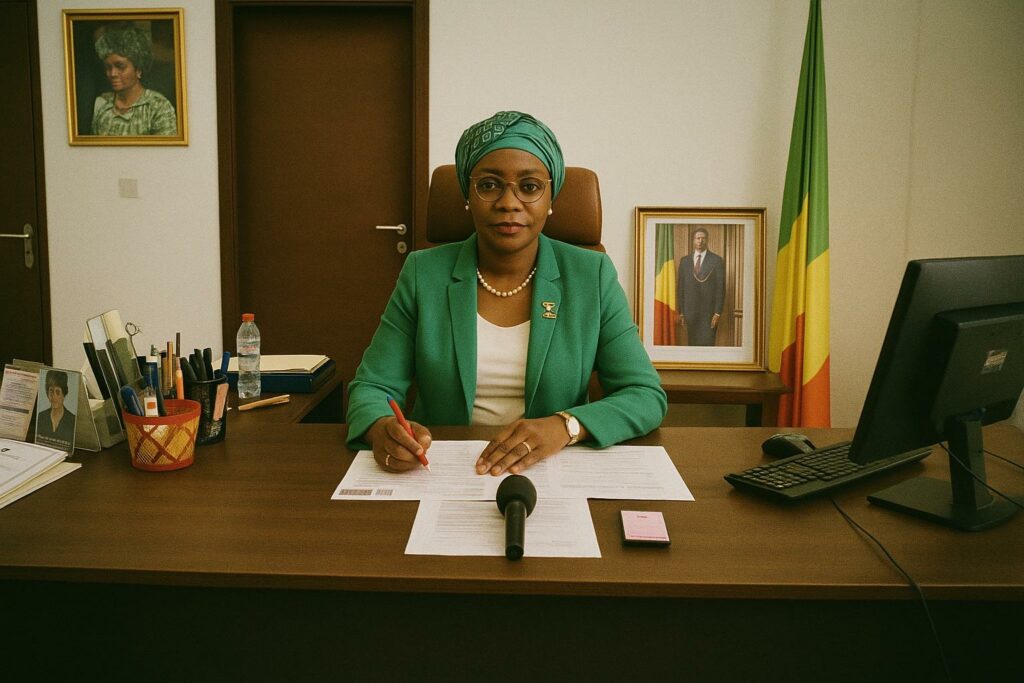A Global Wake-Up Call Resonates on the Congo River
When Minister Ingrid Olga Ghislaine Ebouka Babackas stood before a compact audience in Brazzaville on 24 June, the International Day of the Seafarer had rarely felt so local. The United Nations-endorsed commemoration, carrying this year’s slogan “My ship, a harassment-free zone,” provided both cover and catalyst for the Republic of Congo to elevate a maritime labour issue often eclipsed by piracy and climate debates. Her declaration that tolerance for shipboard harassment must now be “absolutely zero” was striking in a region where legalistic proclamations regularly sink beneath the weight of enforcement deficits.
Numbers That Silence the Engine-Room Optimism
International studies already suggest an entrenched malaise. A 2021 Marine Policy survey estimated that between eight and twenty-five percent of seafarers experience intimidation, while more than half of women working at sea report episodes of harassment. The International Seafarers’ Welfare and Assistance Network recorded a forty-five percent rise in related distress calls during the first quarter of 2023, a trend it attributed to tightening crew complements and pandemic-driven isolation. Congo’s own maritime administration acknowledges three documented cases in 2024; officials concede privately the true number is doubtless higher, given cultural inhibitions and career-threat fears voiced in interviews by local union representatives.
Domestic Law: Solid on Paper, Porous on Deck
Congo’s legal architecture is neither new nor negligible. The 2002 statute defining disciplinary and penal infractions for the merchant marine preceded by three years the European Union’s directive on seafarers’ working conditions. A 1999 decree further mandated a Directorate for Seafarers with authority to investigate abuse. Yet budgeted inspectors rarely exceed a handful for the country’s entire Atlantic frontage, and procedural ambiguity over whether harassment constitutes a labour or criminal matter still delays prosecutions. Maritime lawyers in Pointe-Noire note that conviction rates remain statistically invisible, a fact the minister tacitly acknowledged in her speech by promising a “permanent monitoring mechanism”.
International Leverage: The MLC 2006 and Its 2025 Reinforcement
Congo ratified the Maritime Labour Convention in 2014, binding it to ILO standards on accommodation, hours of rest and grievance procedures. The next tranche of amendments, due to enter into force in 2025, enlarges the definition of harassment and obliges shipowners to create confidential reporting channels. According to the International Chamber of Shipping, these revisions will require new onboard training modules and may raise compliance costs by three to five percent per voyage. For a Congolese fleet dominated by small-tonnage operators reliant on narrow margins, the fiscal calculus is delicate, yet non-compliance risks port-state detentions that could cripple coastal trade.
Gender on the Bridge: Closing the Confidence Gap
The gender dimension looms large. Women represent barely two percent of global seafarers, but the proportion is believed even lower in Central Africa (World Maritime University 2022). In conversations with this review, cadets at the Maritime Training Academy in Pointe-Noire described informal codes instructing them to “keep quiet and carry on” when confronted with lewd remarks from senior officers. By foregrounding harassment, Brazzaville seeks not merely to protect existing female crew but to entice more women into a sector struggling with a forecast shortfall of eighty-nine thousand officers worldwide by 2026 (BIMCO/ICS Manpower Report 2021).
Regional Security Externalities and Diplomatic Optics
Eradicating harassment is also presented as a counter-piracy adjunct. The Gulf of Guinea, though recording a decline in hijackings in 2023, still accounted for eighteen percent of global incidents (IMB Piracy Report 2024). Congolese diplomats quietly argue that psychologically secure crews react more coherently to armed boardings, reducing ransom incentives. Furthermore, the zero-tolerance campaign burnishes Congo’s image as it competes with neighbour states for anchorages and future green-fuels investment. A European diplomat posted in Kinshasa, requesting anonymity, observed that “soft-security credentials are becoming as decisive as tariff schedules in port-selection calculus.”
The Compliance Toolbox: Training, Technology and Union Pressure
Implementing the minister’s pledge will hinge on granular measures: mandatory pre-sail briefings, closed-circuit monitoring in communal areas, and independent hotlines staffed offshore to avoid conflicts of interest. Norwegian research published this year in Maritime Policy & Management indicates that vessels combining digital reporting apps with shore-based counsellors saw a thirty-percent drop in harassment allegations. Congolese shipowners have been slow to adopt such tools, citing bandwidth costs, but the National Seafarers’ Union has threatened strike action if progress stalls. The Ministry, for its part, hints at conditioning flag-state endorsements on compliance audits, echoing approaches trialled in Singapore and Denmark.
Can Zero Truly Mean Zero?
The stakes reach beyond statutory fulfilment. For Congo, projecting credible governance in the maritime sphere strengthens its bargaining power in ongoing negotiations over carbon-levy proceeds at the International Maritime Organization. Success would also offer a replicable model for similarly sized fleets across Africa seeking to balance commercial viability with social responsibility. Yet seasoned observers caution that without sustained funding and transparent data disclosure, the zero-tolerance mantra could join a flotilla of well-intentioned edicts becalmed in bureaucratic waters. The 2025 ILO amendments provide an imminent test: compliance certificates issued then will reveal whether Brazzaville’s declaration was a genuine course correction or a ceremonial salute that faded on the horizon.

